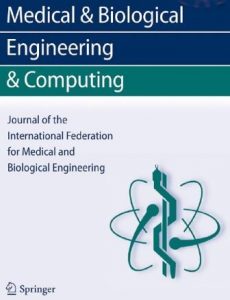已发表的论文

Feasibility of monitoring muscle health in microgravity environments using Myoton technology
Authors: S. Schneider, A. Peipsi, M. Stokes, A. Knicker, V. Abeln
Affiliations: Institute of Movement and Neurosciences, German Sport University Cologne, Germany
Journal: Medical & Biological Engineering & Computing (January 2015), Vol.53, Issue 1, Page 57-66 (DOI: 10.1007/s11517-014-1211-5)
Physical exercise is important for people living under extreme environmental conditions to stay healthy. Particularly in space, exercise can partially counteract the loss of muscle mass and muscle strength caused by microgravity. Monitoring the adaptation of the musculoskeletal system to assess muscle quality and devise individual training programmes is highly desirable but is restricted by practical, technical and time constraints on board the International Space Station. This study aimed to test the feasibility of using myometric measurements to monitor the mechanical properties of skeletal muscles and tendons in weightlessness during parabolic flights. The mechanical properties (frequency, decrement, stiffness relaxation time and creep) of the m. gastrocnemius, m. erector spinae and Achilles tendon were assessed using the hand-held MyotonPRO device in 11 healthy participants (aged 47 ± 9 years) in normal gravity as well as in microgravity during two parabolic flight campaigns. Results showed significant (p < .05–.001) changes in all mechanical properties of both muscles and the Achilles tendon, indicating a more relaxed tissue state in microgravity. Recordings from a phantom rubber material with the device in a test rig confirmed that the device itself was not affected by gravity, as changes between gravity conditions that were too small (<1 %) to explain the changes observed in the tissues. It is concluded that myometric measurements are a feasible, easy-to-use and non-invasive approach to monitor muscle health in extreme conditions that prohibit many other methods. Real-time assessment of the quality of a muscle being exposed to the negative effect of microgravity and also the positive effects of muscular training could be achieved using Myoton technology.
The present findings demonstrated that myometric measurements, using Myoton technology, are an accurate, noninvasive and easy-to-use approach to assess the tone, biomechanical and viscoelastic properties of the muscle under microgravity. As expected, these properties change in zero gravity, causing the measured tissues, muscles as well as tendons, to be in a more relaxed state.


